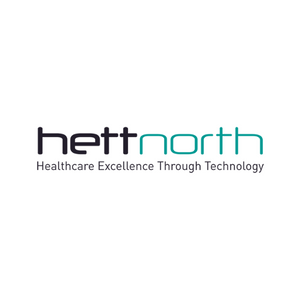In the intricate world of healthcare, where patient well-being takes center stage, the importance of an effective and strategic procurement process cannot be overstated. Healthcare procurement, the method by which healthcare organisations acquire goods and services, is a critical aspect of ensuring the delivery of quality care. In this blog post, we will explore the key benefits and challenges associated with implementing a robust healthcare procurement strategy.
The Foundations of Healthcare Procurement
1. Cost Efficiency:
A well-crafted procurement strategy in healthcare can lead to significant cost savings. By negotiating favorable contracts with suppliers, leveraging bulk purchasing, and adopting cost-effective procurement practices, healthcare organizations can optimise their budgetary allocations. This, in turn, allows for the redirection of resources towards patient care, infrastructure development, and other critical areas.
2. Quality Assurance:
Healthcare procurement is intricately linked to the quality of patient care. Through strategic sourcing and supplier evaluation, healthcare organisations can ensure that the goods and services they acquire meet the highest standards. This includes medical equipment, pharmaceuticals, and other critical supplies that directly impact patient outcomes.
3. Innovation Integration:
A proactive healthcare procurement strategy encourages the integration of innovative technologies and solutions. By staying abreast of advancements in medical technology and pharmaceuticals, healthcare organisations can enhance the quality and efficiency of their services. This fosters a culture of continuous improvement and ensures that patients benefit from the latest advancements in healthcare.
4. Risk Mitigation:
Procurement in healthcare involves navigating a complex web of regulatory compliance, supply chain vulnerabilities, and potential disruptions. An effective procurement strategy includes risk assessment and mitigation measures to safeguard against unforeseen challenges. This may involve diversifying suppliers, ensuring regulatory compliance, and implementing contingency plans to address disruptions in the supply chain.
Challenges in Healthcare Procurement
1. Regulatory Complexity:
The healthcare industry is subject to stringent regulations, and procurement processes are no exception. Navigating compliance requirements, understanding regulatory changes, and ensuring that procurement practices adhere to industry standards can be challenging. Healthcare organisations must invest in staying informed and adapting their strategies to comply with evolving regulations.
2. Supply Chain Vulnerabilities:
The global nature of supply chains in healthcare introduces vulnerabilities. Disruptions, such as natural disasters, geopolitical events, or global health crises, can impact the availability of critical supplies. Procurement strategies must include contingency plans to address supply chain disruptions, ensuring the continuous availability of essential goods and services.
3. Budget Constraints:
Healthcare organisations often operate within tight budget constraints. Balancing the need for cost-effective procurement with the demand for high-quality goods and services poses a constant challenge. Strategic decision-making is crucial to allocate resources efficiently and maintain a delicate equilibrium between cost savings and quality assurance.
4. Technological Integration:
The integration of technology into healthcare procurement processes can be a double-edged sword. While technological advancements offer opportunities for efficiency and innovation, implementing and adapting to new technologies requires investment and may face resistance from stakeholders. Overcoming the learning curve and ensuring seamless integration are essential for successful technological adoption in procurement.
Striking a Balance for Optimal Healthcare Procurement
As healthcare organisations strive to deliver optimal patient care, a balanced and strategic approach to procurement becomes paramount. The benefits of cost efficiency, quality assurance, innovation integration, and risk mitigation must be weighed against the challenges of regulatory complexity, supply chain vulnerabilities, budget constraints, and technological integration.
Healthcare procurement is a multifaceted process that goes beyond merely acquiring goods and services. It is a strategic endeavor that directly impacts the quality of patient care, the financial health of healthcare organisations, and the overall efficiency of the healthcare system. By acknowledging the benefits and challenges associated with healthcare procurement strategies, organisations can develop comprehensive and adaptable approaches that contribute to the continuous improvement of the healthcare ecosystem. As the healthcare landscape continues to evolve, a well-defined and flexible procurement strategy will be instrumental in navigating the complexities and ensuring the delivery of exceptional care to patients worldwide.
Find out more about integrated care at HETT North.
%20(1).png?width=500&height=58&name=HETT%20insights%20logo%20RGB-04%20(1)%20(1).png)


